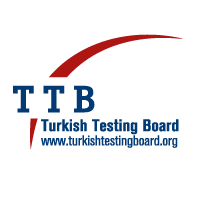Ensuring Quality in DevOps Culture
Speaker of TestIstanbul 2024
Integrating quality assurance (QA) practices into DevOps culture has become increasingly important in modern software development environments. Collaboration, automation and continuous feedback characterize the seamless integration of DevOps development and operations teams to achieve rapid and reliable software delivery. In this context, quality assurance plays a key role in ensuring that software products meet the highest quality, performance and reliability standards throughout the development life cycle.
This brief explores key principles, challenges, and best practices related to quality assurance in a DevOps culture. This emphasizes the importance of quality transfer in the development process, as quality control processes are integrated in every step of the DevOps process. Automation is the cornerstone of DevOps quality assurance, enabling continuous testing, integration and deployment, and providing rapid feedback for early problem identification and resolution.
In addition, the summary addresses the cultural and organizational challenges of implementing quality assurance in DevOps, emphasizing the need to foster collaboration, break down silos, and promote a culture of continuous improvement. It also discusses the importance of toolchain integration and capability development to support effective QA practices in DevOps environments.
Moreover, the abstract discusses the cultural and organizational challenges in implementing QA within DevOps, emphasizing the need for fostering collaboration, breaking down silos, and nurturing a culture of continuous improvement. It also addresses the importance of toolchain integration and skills development to support effective QA practices within DevOps environments.
Overall, this collection works at the intersection of QA and DevOps culture, providing insights into how organizations can use DevOps principles to improve software quality, accelerate delivery, and meet the changing demands of today’s and dynamic software. landscape.
Principles:
- Continuous Integration:- Automatically and frequently integrate code updates. Continuous Integration (CI) minimizes integration problems and enhances overall code quality by ensuring that code changes are continuously tested and validated.
- Continuous Deployment:- In order to deliver software updates in a timely, dependable, and repeatable manner, automate the deployment process. By ensuring that the software is always deployable, CD lowers the possibility that defects will be introduced during deployment.
- Security Integration:- Include security procedures like penetration testing, vulnerability scanning, and code reviews in the DevOps lifecycle. Every team member should view security as a shared responsibility.
- Shift Left:- Early on in the development process, begin testing. Early defect detection lowers the cost and time of fixing problems later in the life cycle.
Challenges:
- Automation Overload:- Although automation is a fundamental component of DevOps, excessive automation without adequate supervision can result in problems with quality. Certain scenarios might not be covered by automated tests, and if automated deployment procedures are not well tested, they could introduce errors.
- Skills gap:- A broad skill set including development, operations, automation, and teamwork is needed for DevOps. It can be difficult to find people with the correct combination of experience and skills, especially in places where talent is in short supply.
- Lack of standardization: It becomes challenging to guarantee constant quality when teams lack standardized procedures and equipment. Because every team might use different procedures and resources, there could be discrepancies and incompatibilities.
Solutions:
- Improvements through testing:- The company should create testing procedures for the system in order to enhance its speed, quality, and process. Testing can identify numerous flaws in the system. Testing will assist the team and the organization in determining the accuracy of the product. Organizations implementing DevOps may experience a number of systemic issues, but these can be resolved through testing. We need a location that can accommodate flexible systems and multiple approaches to problem-solving in order to facilitate this cultural shift. An organization will better adopt DevOps if an order makes quick adjustments and retests.
- Documentations: Keep thorough records and promote knowledge exchange among team members. Teams can more easily onboard new members and have access to crucial information if processes, procedures, and best practices are documented.
- Monitoring: Use reliable observability and monitoring tools to keep an eye on the functionality, condition, and behavior of infrastructure and applications in real time. Monitoring ensures high service availability and performance by aiding in the prompt detection and diagnosis of problems.
- Feedbacks: Create feedback loops to collect information from stakeholders, users, and production settings. Respond to user feedback to make software better every time and to better serve user needs.
About Sagar Mahendrakar
Join Sagar Mahendrakar, Software Quality Engineer at Red Hat, as he explores the critical role of Quality Assurance (QA) for achieving superior software performance and reliability. In this session, Sagar will address the cultural and organizational challenges of embedding QA practices within DevOps, emphasizing the need to foster collaboration, dismantle silos, and cultivate a culture of continuous improvement. He will also highlight the importance of toolchain integration and skills development to support effective QA processes. Learn the strategies to navigate these challenges and enhance software delivery in today’s dynamic technology environments.


